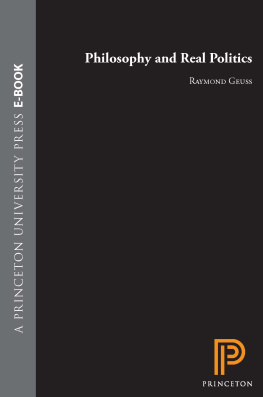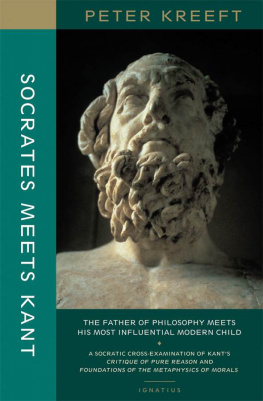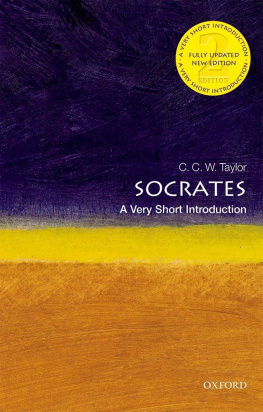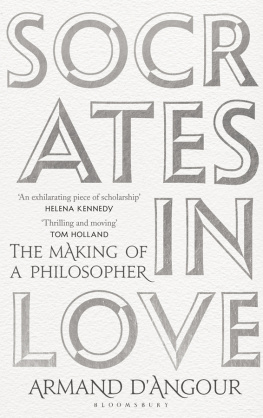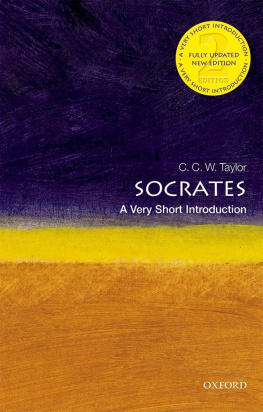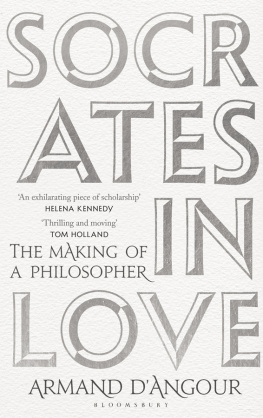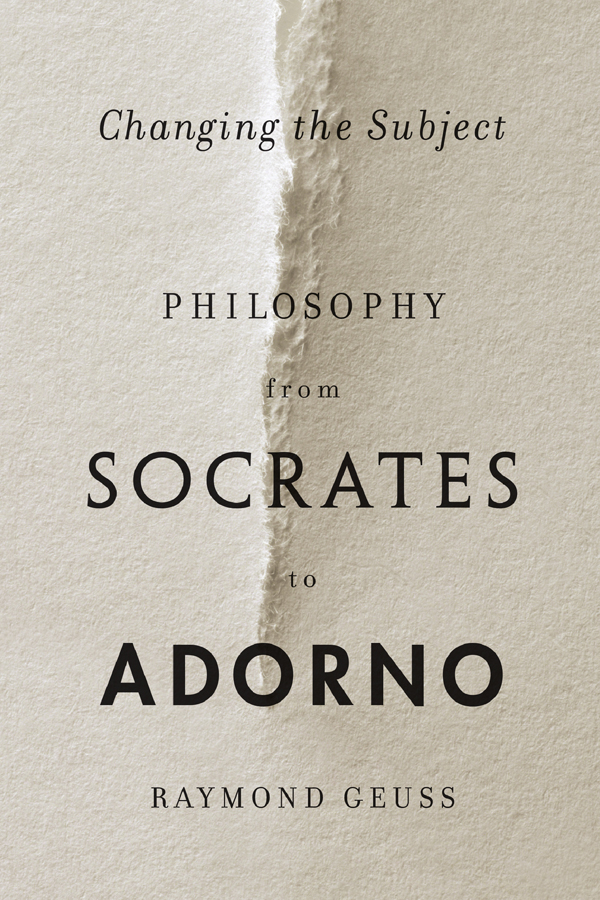Contents
Guide
Pagebreaks of the print version
CHANGING THE SUBJECT
Philosophy from Socrates to Adorno
RAYMOND GEUSS


CAMBRIDGE, MASSACHUSETTS
LONDON, ENGLAND | 2017
Copyright 2017 by the President and Fellows of Harvard College
All rights reserved
Jacket design: Graciela Galup
Jacket background: Getty Images
978-0-674-54572-4 (alk. paper)
978-0-674-98199-7 (EPUB)
978-0-674-98200-0 (MOBI)
978-0-674-98198-0 (PDF)
The Library of Congress has cataloged the printed edition as follows:
Names: Geuss, Raymond, author.
Title: Changing the subject : philosophy from Socrates to Adorno / Raymond Geuss.
Description: Cambridge, Massachusetts : Harvard University Press, 2017. | Includes bibliographical references and index.
Identifiers: LCCN 2017010499
Subjects: LCSH: Reasoning. | Questioning. | PhilosophyHistory.
Classification: LCC BC177 .G48 2017 | DDC 100dc23
LC record available at https://lccn.loc.gov/2017010499
hilaritatis causa
Endlich!
Die Freiheit!
Die Harpunen fliegen.
Der Regenbogen lagert in den Straen
Nur noch vom fernen Summen der Riesenbienen unterhhlt.
Alle verlieren alles, das sie, ach wie oft,
vergeblichberflogen hatte.
At last!
Freedom!
The harpoons fly.
The rainbow is stockpiled
In the streets
Only hollowed out from below
By the distant humming of huge bees
Anything that had ever flown,
oh how often, in vain, over anyone:
everyone loses all of that.
MERET OPPENHEIM, Husch, husch, der schnste Vokal entleert sich (1933)
CONTENTS
One of the most striking images in all of literature, including all philosophical literature, is to be found in book VII of Platos Republic. In an underground cave, prisoners are chained up with their backs to a source of light. They have been this way all their lives from birth, and they pass the time looking at the shadows that are cast on the walls in front of their eyes. These shadows appear, flicker, coalesce, dissolve and melt away, and (sometimes) reappear, and (from time to time) they form certain more or less regular patterns; they sometimes succeed one another at random, but at other times they seem to exhibit some kind of order. Some prisoners become adept at mapping the sequences of shadows, to the limited extent to which any regularity at all is discernible in their appearances and disappearances; common sense is the name given to the skill they have learned to develop in studying this play of shadows.
Suppose, Plato suggests, someone were to free some of these prisoners, turn them around, force them to face the light, and show them the objects that threw the shadows which they had spent their lives watching. Plato says they would be dazzled, blinded, and distressed. Yet the pain and disorientation of this reversal, which destroys their hard-acquired common sense, is a necessary concomitant of the process of coming to a real understanding of the world in which they live. Eventuallybut that eventually could designate a very considerable amount of timethe liberated prisoners might learn to understand the play of shadows even better than those who had never been freed, because they might be able to acquire some knowledge of the real objects themselves that threw the shadows. If they then continued to take the shadows seriously at all, it would be as the effects of something else, not as substantive entities important and causally efficacious in their own rightexcept in so far as their deluded flickering might move the prisoners who always had been and still were in chains to one form of belief or speech rather than another.
To take an example from our political life, the shadows are a bit like modern rights discourse. Saddam Hussein gasses his own population in the 1980s and the United States pats him on the back and gives him weapons: he is an important ally. Suddenly in the 1990s he makes himself a nuisance, and people discover that he has been violating the human rights of his own citizens, and so his country is invaded. After the second invasion of what is, after all, a purportedly sovereign state and recognised member of various international organisations, carried out against the will of the UN Security Council, the US commander in charge of the forces occupying Iraq sternly warns Iran not to violate international law by interfering in the internal affairs of Iraq because it is a sovereign country. Human rights are presented by those who appeal to them as if they were a powerful and coherent body of principles that are to govern what happens. However, if one simply studies the way they function in real political contexts, one will never get anywhere; trying to find any continuing, reliable rhyme, reason, consistency, or substance in appeals to human rights at this level of analysis is clearly a mugs game. Some people think that behind these shadows there stands the normative reality of Law or an ideal budget of Human Rights which it is the philosophers task to reveal. Blessed are they who, even though they have not seen, yet do they believe. Others think that, to change the image, the philosophers Natural Law, or Human Rights, are, as it were, shadows of shadowsthat they are not substantive reality but a hallucination of people who have spent too much of their time watching shadows, and that understanding, if not exactly reality, is to be found elsewhere. In either case, no one thinks that understanding is to be gained by simply cultivating our skill at classifying and mapping these shadows. One way or the other one has to change the subject to make any progress. Either one needs an ideal theory of Human Rights / Natural Law etc. or one needs another kind of theory of how humans act and speak, which also does not take their mere professions completely at face value. It might not be clear which of the proposed new mappings deserves to be taken most seriously, but all of them are, each in its own way, attempts to construct something that is the opposite of common sense: in any case one is in some sense changing the subject. That is whator, at any rate, that is one thing thatphilosophy has been.
This book arose as a result of the accidental conjunction of two very different things. First, in 2010 one of the managers of Heffers Bookshop in Cambridge, England, asked some academics from different disciplines at Cambridge University to put together a list of the ten most interesting books in their respective areas, not the ten that had historically been most influential or the ten currently most generally popular or most highly regarded by current advanced practitioners or the ten that showed the highest degree of literary polish or were pedagogically most useful, but the ten that would, simply, most repay serious study because they had something inherently important to say. As a particularly good customer of the shop, I was asked to put together such a list for philosophy. One further requirement Heffers imposed was that there should be only one work by any given author, which turned out to be a very helpful practical limitation, if only because it prevented me from even being tempted simply to list five or six dialogues by Plato. The limitation to ten items also turned out to be a useful intellectual discipline in a number of ways: my first few trials at putting together a list were complete failures because, I eventually realised, I was still allowing myself to be influenced by exactly the kinds of considerations that I was being asked to ignore. I was still being guided by the general reputation of the philosopher in question, by questions of historical influence and of centrality to the existing discipline or even to the usual curriculum. Only after several go-rounds did I feel I had freed myself from these concerns, which it would be perfectly appropriate to take into account in a different kind of enquiry, but which ought really to be irrelevant to deciding which works were powerful, engaging, enlightening, and worth the attention of the easily distractible members of early twenty-first-century populations.



